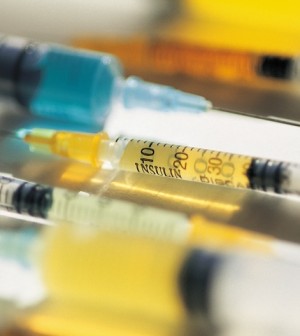- Could Artificial Sweeteners Be Aging the Brain Faster?
- Techniques for Soothing Your Nervous System
- Does the Water in Your House Smell Funny? Here’s Why
- Can a Daily Dose of Apple Cider Vinegar Actually Aid Weight Loss?
- 6 Health Beverages That Can Actually Spike Your Blood Sugar
- Treatment Options for Social Anxiety Disorder
- Understanding the Connection Between Anxiety and Depression
- How Daily Prunes Can Influence Cholesterol and Inflammation
- When to Take B12 for Better Absorption and Energy
- Epsom Salts: Health Benefits and Uses
Health Highlights: April 24, 2015


Here are some of the latest health and medical news developments, compiled by the editors of HealthDay:
FDA Warns Supplement Makers About Stimulant
The U.S. Food and Drug Administration on Thursday sent warning letters to the makers of eight dietary supplements that state their products contain a potentially dangerous compound that acts like amphetamine.
According to The New York Times, the letters notify the five companies that the chemical, known as BMPEA, is not an appropriate dietary ingredient or an extract of the rare shrub Acacia rigidula, as the product labels claim.
Earlier this month, Harvard researchers reported on the presence of BMPEA in 11 of 21 weight-loss and sports supplements they tested. At the time, they also said the FDA first discovered BMPEA in these products in 2013, but failed to take any action or issue any warnings to the public.
The companies the agency notified Thursday include Hi-Tech Pharmaceuticals, Human Evolution Supplements, Train Naked Labs, Better Body Sports and Tribravus Enterprises, according to the Times.
Steve Mister, president and chief executive of the Council for Responsible Nutrition, told the Times that, “We see this as a positive step to getting a potentially dangerous ingredient out of the marketplace.”
Vitamin Shoppe and Vitacost, which are owned by the supermarket chain Kroger, have already said they would stop selling the supplements. And the Canadian government pulled the products from store shelves last December because of safety concerns, the Times reported.
Copyright © 2026 HealthDay. All rights reserved.










